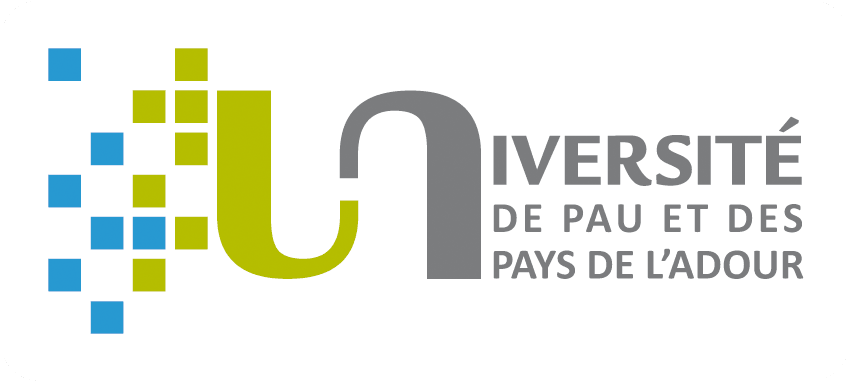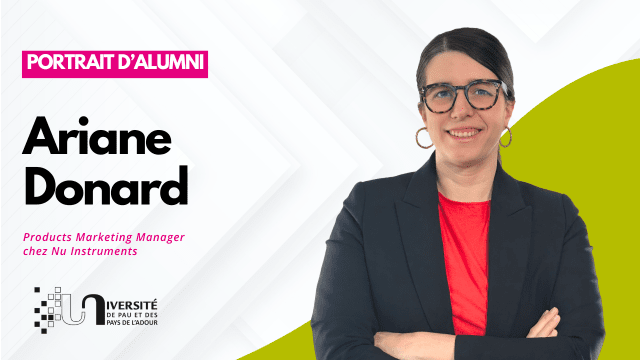Ariane Donard, Products Marketing Manager at Nu Instruments in Wrexham (UK)
After completing a master's degree in Evaluation, Management and Treatment of Pollution (EGTP) at UPPA, including a year of Erasmus in Göteborg, Ariane Donard was recruited as a project manager by a consultancy firm. At the end of this first fixed-term contract, she decided to return to research and embarked on a UPPA/CEA thesis. This took her to Nu Instruments in Wrexham, Wales.
Can you tell us about your career path?
I didn't have a clear idea of what I wanted to do after my A-levels, but I was interested in science. I did a year of preparatory physics and chemistry at the Lycée Barthou in Pau, but I didn't really enjoy it. I wasn't really motivated by learning for a competitive exam. I needed passion and meaning. So I decided to continue my studies at UPPA. By equivalence, I was able to enter the L2 in Chemistry, then a year later the L3 in Evaluation, Management and Treatment of Pollution (EGTP), which led to a professional master's degree. This led to a professional master's degree, which gave access, for example, to jobs in the management of sewage and drinking water networks in local authorities. At the time, I saw myself in an operational role.
What did UPPA offer you?
What I remember most about my time there was the infectious passion of the lecturers who drew us into their subjects and made us want to learn. They were also very approachable. They were all easy to talk to and always ready to answer students' questions. At university, I learnt how to do my own research, how to stand back and develop my judgement... I grew up! One of the best opportunities UPPA gave me was the chance to go on Erasmus to Gothenburg in Sweden, where I completed part of my Masters and perfected my English. This was an asset when I went on to apply for a job in the UK.
When you finished your EGTP Masters, you started working. What prompted you to return to university?
I did my end-of-studies placement in a design office specialising in sewerage and drinking water networks. It was interesting because I was able to apply what I'd learnt during my course. The company then offered me a one-year fixed-term contract as a project manager. I accepted. I'd always wanted to do a practical job, and I'd deliberately stayed away from research by choosing the EGTP pathway, so it made sense. But after 18 months, something important was missing: science. So I got back in touch with the teachers on the course and one of them offered me a UPPA/CEA thesis (2012-2014) on the non-proliferation of nuclear weapons. I went back to university and really appreciated the support provided by UPPA, which has fantastically well-equipped laboratories where I could easily handle cutting-edge equipment such as high-resolution mass spectrometers. I also appreciated the doctoral school, where I learnt how to present my thesis in 180 seconds, write a CV, conduct a recruitment interview, etc. These are very useful modules that help you keep your feet on the ground.
During this thesis, I had the opportunity to take part in a number of conferences and to meet various academic and professional research players. This is what enabled me to find my job at the end of my thesis. I heard from one of my colleagues that Nu Instruments was urgently looking for an application engineer for a piece of equipment that I had used during my thesis. I sent in my CV... The Friday I finished my thesis contract, the following Monday I was at Wrehxam. Ten years later, I'm still there and I've grown within the company.
Two or three words that you spontaneously associate with UPPA?
Development - Conviviality - Human scale
Any advice for UPPA students at the start of their course?
Make the most of the university's experience. I'd advise them to seize every opportunity that the university has to offer: spending a semester abroad as part of the Erasmus programme, doing work placements, taking part in campus life, talking to lecturers and local players... Open up as much as you can to get to know yourself better, adjust your career path and enhance your CV. And then follow your passions!
Find out more ?
Nu Instruments Master's degree in pollution assessment, management and treatment
Graduate school of exact sciences and their applications
Interview by Florence Elman

Comments0
Please log in to see or add a comment
Suggested Articles


